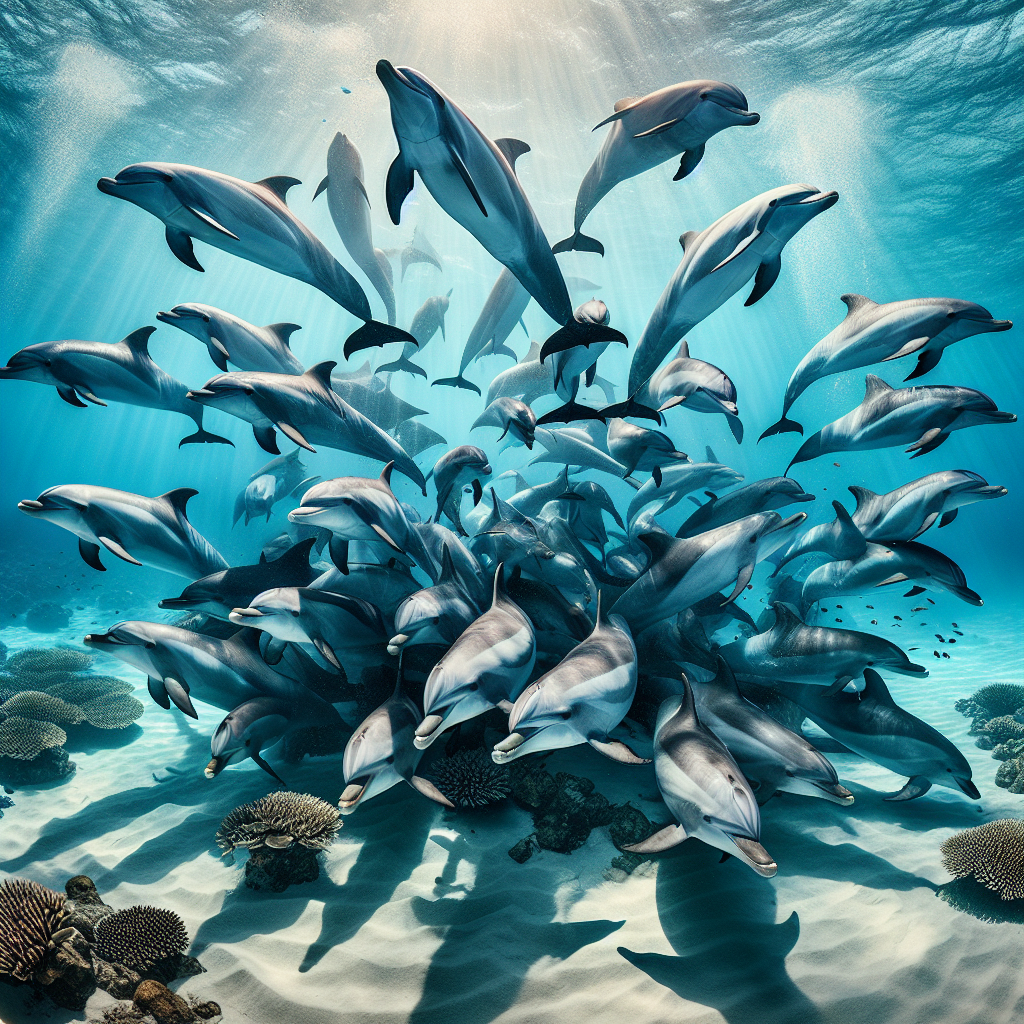The Social Lives of Dolphins: Exploring Their Complex Relationships

The Social Lives of Dolphins: Exploring Their Complex Relationships
Dolphins, often celebrated as the acrobats of the ocean, are not just entertainers; they are complex, social animals that exhibit a fascinating array of behaviors indicative of advanced social structures and relationships. These intelligent marine mammals, primarily belonging to the family Delphinidae, reveal intricate dynamics in their pods – groups that can range from just a few individuals to over a hundred. To understand the social lives of dolphins is to delve into a world of sophisticated communication, cooperative behaviors, and deep emotional bonds.
1. Pod Dynamics and Structure
At the core of dolphin social life is the pod, a family unit that forms the basis of their social structure. These pods can vary in size and composition, comprising mothers and their offspring, siblings, and sometimes unrelated individuals who form strong social ties. Within a pod, relationships are not only essential for rearing young and finding food but also play a crucial role in individual dolphins’ emotional well-being.
Pods are often matrilineal, led by females, which underscores the importance of female dolphins in maintaining social cohesion and transmitting survival knowledge. Research has shown that these female-led groups often provide a nurturing environment for calves, teaching them crucial skills such as hunting and social interactions.
2. Communication and Social Interaction
Dolphins are known for their remarkable communication skills, utilizing a variety of sounds including clicks, whistles, and body language to convey a range of messages. Some studies suggest that dolphins possess unique signature whistles that function similarly to names, allowing individuals to recognize and respond to one another.
The social interactions within pods can be complex and dynamic. Dolphins engage in playful behaviors, such as surfing on waves and playing with objects, which not only reinforces social bonds but also enhances cooperation and teamwork. Social play is particularly important among younger dolphins, helping them develop skills necessary for adult life.
3. Cooperation and Altruism
One of the most intriguing aspects of dolphin social behavior is their propensity for cooperation. Dolphins are known to engage in cooperative hunting practices, where individuals work together to herd fish into tight groups, making it easier for all to feed. This communal approach to foraging is a testament to their ability to collaborate and share resources, embodying a form of mutualism found in few other animal species.
Moreover, instances of altruistic behaviors have been documented. Dolphins have been observed aiding injured or ill pod members, even to the detriment of their own safety. Such acts highlight a profound sense of empathy and social responsibility within dolphin communities.
4. Inter-Pod Relationships and Cultural Transmission
Dolphins do not exist in isolation; they often interact with neighboring pods, sometimes forming alliances that can last for years. These inter-pod relationships can facilitate resource sharing and cooperative behaviors across larger geographic areas. Cultural differences have also emerged among different populations of dolphins, with variations in hunting techniques and vocalizations that can be passed down through generations. This cultural transmission fosters distinct identities among dolphin groups, making their social lives even more intricate.
5. Challenges to Dolphin Social Structures
Despite their remarkable social systems, dolphins face numerous threats from human activity, including habitat degradation, pollution, and hunting. The decline of marine ecosystems can disrupt the intricate social structures that dolphins rely upon. Additionally, the capture and display of dolphins in marine parks have raised ethical concerns about the impact on their social bonds and overall well-being.
The importance of conserving these complex social systems cannot be overstated. Protecting dolphin habitats and ensuring their freedom to interact in the wild is crucial for the preservation of their intricate social networks.
Conclusion
The social lives of dolphins reveal a rich tapestry of relationships marked by cooperation, communication, and emotional depth. As researchers continue to study these fascinating creatures, it becomes increasingly evident that dolphins are more than just playful marine mammals; they are sentient beings with complex social dynamics that warrant our respect and protection. Understanding dolphins not only enhances our appreciation of the natural world but also highlights the importance of safeguarding their habitats for future generations to admire and study.